Montanans are an independent lot. We're used to splitting tickets and voting for the best person for the job. For example – in 2016, Montana went for Trump by about 21 points, but also elected Democrat Steve Bullock to a second term as Governor. That independent spirit is coming in to play during the 2018 mid-terms, where candidates with sharply contrasting backgrounds face off in Montana races for the U.S. Senate and U.S. House of Representatives. Republicans have chosen to run two multi-millionaires, real estate developer Matt Rosendale and software giant Greg Gianforte, who square off against Montana farmer and incumbent Senator Jon Tester and Kathleen Williams, a career natural resource management and conservation professional.
Tester v. Rosendale
Both Senate candidates are vying hard for the outdoor vote and both have long records on issues that matter for clean air and water, public lands, the scientific management of wildlife and the outdoor economy. Tester maintains a slim lead, despite weaponizing of the campaign by Donald Trump and Senate Republicans—including the Junior Senator from Montana Steve Daines, and anti-public land Senators Rand Paul and Mike Lee, both of whom are openly breaking the "Mansfield Rule" which stipulates that sitting senators won't campaign against each other in the name of getting things done in the upper chamber.
In fact, Rosendale is hosting Utah's Senator Lee in Whitefish, MT this weekend. Lee is perhaps the House's leading proponent of the sale and transfer of public lands. He's introduced multiple bills on the issue, and despite Rosendale's claim that he's given up transfer and sale, he's been palling around the United States and Montana with the most ardent supporters of efforts to steal your American birthright for their donors' private playgrounds and profits. He's also supported by the likes of Dan and Farris Wilks, the billionaire Texas fundamentalists who bankrolled Ted Cruz's presidential campaign and who are now famous for trying to steal the Durfee Hills in Montana, as well as shutting down access to tens of thousands of acres of land in Idaho that used to be open to the public for generations.
Aside from his insidious friends and donors, Matt Rosendale's career in the legislature and beyond has been typical of many politicians on the far-right who claim to support hunters and anglers but actually don't. He's supported the transfer of public lands enthusiastically, even noting in 2014 that if he were to be elected to Congress, he'd the be the leader of the privatization movement in Washington D.C. He's voted to allow county commissioners to manage wildlife instead of professionals at the Department of Fish, Wildlife and Parks and he's worked against the Confederated Salish & Kootenai Water Compact, which, if it didn't pass, would have caused mass confusion and litigation related to water rights across Montana, potentially threatening in-stream flow protections for key trout streams such as the Jefferson, Big Hole and Blackfoot rivers.
And Rosendale's record offers no shortage of other bad votes he's taken on issues like eliminating elk hunting opportunities for Montana residents in favor of out-of-state hunters, banning sage grouse hunting and a host of other anti-wildlife and anti-access bills. As state Auditor, he led the charge to scuttle a conservation easement that opened up 20,000 acres of prime mule deer habitat in Eastern Montana, putting in jeopardy the future of the family that negotiated in good faith, almost costing them their ranch. Rosendale's reasoning? That the rights of the mineral owner should always, and in perpetuity, be above those of the person who actually owns the land. While "Maryland Matt" likes to claim that he's a champion for hunters and anglers, the reality is much, much different. He's sponsored only two bills during his time at the Legislature, both of which were introduced in 2001, and both of which died.
Contrast that with Jon Tester, who broke the generations-long drought on land designation legislation by passing the Rocky Mountain Front Heritage Act, which protected some of Montana's most sensitive cutthroat trout fisheries and our most important migration corridors for elk and mule deer. Tester's also been a champion of the Land and Water Conservation Fund since his first day in office, working diligently to pass the full reauthorization and to fully fund the most important tool to increase access to public lands, conserve key private lands and even helps pay for municipal swimming pools and parks. And Tester has been a stalwart supporter and champion of protecting the headwaters of the Yellowstone River from ill-conceived mining schemes, supporting community led efforts in the Blackfoot River area to protect spawning streams for bull trout, cutthroat trout and ensure elk and deer habitat remained in good condition, while preserving the traditional uses for livestock. Tester's time in the Montana legislature too shows a marked contrast from Rosendale. Tester led efforts to strengthen Montana's split-estate laws so that landowners had some rights against the rapacious hand of the land men who like to dictate terms and conditions when landowners try to stand up for themselves, and he was always on the side of Montana's hunters and anglers, helping stave off efforts to eliminate our Stream Access laws, erode conservation funding and attack the scientific management of wildlife.
Gianforte v. Williams
Greg Gianforte, like Matt Rosendale, is a millionaire who moved to Montana late in life, after making millions in business on the east coast—though Gianforte made his fortune in software, instead of real estate development. Last year, Gianforte won the special election to fill Ryan Zinke's vacated congressional seat from which Gianforte emerged most well known for beating up a reporter and being sentenced to court-ordered anger management. Gianforte also recently stood smiling on the stage next to Donald Trump Jr. while junior called incumbent Senator Jon Tester a "piece of garbage." To say the very least, short-term incumbent congressman Gianforte is not a point of pride for most of us in the Treasure State.
Gianforte's record since taking office has unsurprisingly been vigorously pro-polluter and anti-clean air and clean water. During his short, one year tenure in the House, Gianforte has voted for a bill that conservation groups called "the most aggressive attack ever waged on America's national parks and monuments," to undermine protections on fish and wildlife, to gut environmental review of new oil and gas pipelines, to reduce safeguards against methane pollution and to rollback important protections for our nation's forests by allowing large-scale timber projects to bypass environmental review. Gianforte has managed to levy those and almost twenty other anti-environment votes during his brief time as a congressman, earning him a dismal 9 percent score from the League of Conservation Voters.
In contrast, Kathleen Williams—who is an avid angler, hunter, hiker and skier—has spent much of her career focused on the health of watersheds, wild landscapes and wildlife. Williams worked for the U.S. Forest Service, the Montana Department of Fish and Game, the Montana Environmental Quality Council and served as associate director for the Western Landowners Alliance. Much of Williams work has focused on water quality issues, improving recreational opportunities for Montana sportsmen and women and on strategies to build sustainable ranches that protect wildlife and habitat. Williams is best known, however, for her six year tenure as a state legislator in the Montana House of Representatives, during which she earned a perfect 100 percent score from the Montana Conservation Voters (MCV). Of Williams, MCV Executive Director Rick Potts noted, "Kathleen Williams has a keen analytical mind, a thorough understanding of complex conservation issues, and a demonstrated successful track record of working across partisan lines to develop solutions that protect both our natural world and our communities." Williams has earned the endorsement of both MCV and the nationally-based League of Conservation Voters.
A Stark Contrast
In Montana where, these days, flatbed ranch trucks and Yakima-adorned Subarus line the street at the local dive bars, voters are faced with a choice between very different candidates. In Montana's Senate race, voters have a choice between Tester, a dry-land dirt farmer who can change out a hydraulic piston, swear like a sailor, butcher his own meat and who has a lifelong Montana story that rivals most pioneers or an east coast real estate developer with a long, well-documented history of voting against clean air, healthy watersheds and healthy habitat and advocating for rapid and extensive sell-off of Montana's prized public lands. On the House side, the contrast between the candidates is just as stark. Kathleen Williams supports our public lands and wants to keep them open for hunting, fishing and other forms of outdoor recreation. She also accepts climate science and favors clean energy from wind and solar. Greg Gianforte, on the other hand, is far more in line with Donald Trump and Matt Rosendale. While he's famous for body-slamming a reporter in 2017, he's weak on public lands and he's weak on clean energy.
People who grew up in the west know all too well that we've long had eastern tenderfeet coming out here to God's country attempting to influence our votes and the way we live our lives. Luckily, at least in Montana, we've largely voted against those short-term, self-interested candidates. Montanans should send Jon Tester back to Washington D.C. for a third term and elect, in Kathleen Williams, a true lover of the outdoors that has spent most of her career advocating for recreational opportunities, water quality, healthy habitat and sustainable practices that benefit Montana landowners and residents. The Swamp needs true champions of public lands and publicly held wildlife, not east coast multi-millionaires that advocate for polluters and corporations at the expense of Montana's great wild and natural resources.
We hate to ask, but ...
Hatch Magazine's independent conservation journalism depends on the support of readers like you. Please consider becoming a Hatch Magazine sustaining member by making a small monthly or one time donation. Your contribution will help fund more of the in-depth coverage you've come to trust.








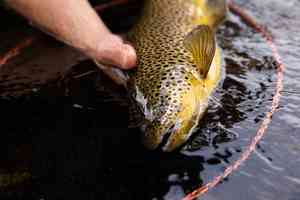


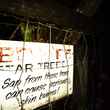

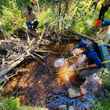


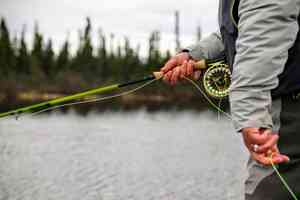







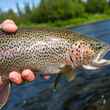

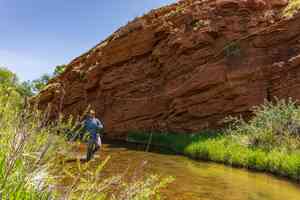



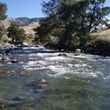
Comments
Craig replied on Permalink
Good luck Montana from a Texan with similar clear cut choices.
Pages